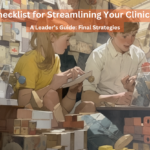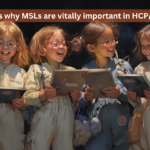Pharmaceutical marketing is all about understanding and connecting with healthcare professionals (HCPs), from GPs to specialists. Each group has its own way of engaging with information presented to them. That’s where agile methods like Scrum or Kanban come in, allowing us to execute with flexible and evolving plans. This approach helps tailor our approach to meet the specific preferences of different HCP segments.

Iterative Development: Segment-Specific Communication Strategies
Let’s say a company is launching a new cancer drug. Instead of sending the same information to all cancer doctors, agile marketing uses quick cycles, called ‘sprints’, to create tailored messages. For example, lung cancer specialists might get info showing how well the drug works for lung cancer, while blood cancer specialists get data relevant to their field. These sprints also let marketers quickly test different strategies and adjust based on what’s working, making sure they’re really hitting the mark with each group of doctors.

Cross-Functional Collaboration and HCP-Centric Feedback Loops
Agile marketing breaks down walls between departments, bringing together a variety of experts – like market access pros, medical science liaisons (MSLs), and digital marketers – to work on a unified plan for engaging HCPs. By having MSLs on the team, they can bring in real-time feedback from key opinion leaders and HCPs. For instance, if doctors prefer interactive online learning over emails, the team might switch to digital platforms for more engaging content.

Data-Driven Decisions and Agile Responsiveness
The real power of agile marketing in HCP engagement lies in using data to make decisions. By analyzing how different HCPs respond, teams can figure out what works best for each group. Maybe younger doctors are all about mobile-friendly content, while more seasoned HCPs like in-depth resources. These insights help tailor the content as well as the delivery preferences. Plus, being agile means being ready to shift gears in response to new trends or changes in HCP behavior, or direct feedback from a representative sampling.
Using agile methods in HCP marketing is a major step forward in creating more effective, responsive strategies. By focusing on iterative development, teamwork across departments, and data-driven insights, pharmaceutical marketers can really connect with the diverse needs of HCPs. This approach will be key to success as the industry and HCP needs continue to evolve.









